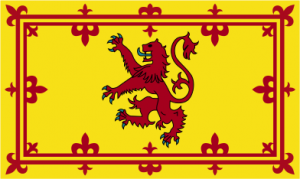Maintaining your friendships when you’re in debt
When you’re trying to cut back on your spending, it’s almost inevitable...

(Courtesy of Wikicommons user Eyrian)
If you’re one of our avid followers you’ll be well aware of debt solutions like IVAs, DMPs and bankruptcy, but the Debt Arrangement Scheme (DAS) is a debt repayment programme available for those of you who live in Scotland.
The Debt Arrangement Scheme is only available in Scotland. DAS has been part of Scottish law since it was brought into force in 2004. It was introduced as a way for people with more than one debt to protect themselves against court action.
Our top 7 facts shed some light on this unique debt solution, DAS. Scotland is the only country in the UK currently offering a formal debt repayment plan. In England, Wales and Northern Ireland, a debt management plan is the nearest solution. It works in much the same way, but is informal and there’s no public record, as with the DAS register (where are debt arrangement schemes are listed).
DPPs can only be set up after getting advice from an approved organisation, such as StepChange Debt Charity. We can help you set up a DPP and support you through it. Unlike some debt advice companies, we don’t charge you anything to get set up on DAS.
The term DAS or Debt Arrangement Scheme is actually the name of the statutory scheme that’s run by the Scottish Government.
A DPP or debt payment programme is the name for the payment programme you set up under this scheme.
It’s a DPP that lets you repay your debts over a realistic amount of time. However, perhaps strangely, it’s the scheme’s name, DPP, that’s entered the public consciousness rather than the name of the actual debt solution!
If you set up a DPP through DAS and make your payments every week or month, then your creditors have to freeze any interest or charges that they would normally add to your debt. They are frozen from the date your DAS is approved.
This means you’ll see your debt coming down much quicker.
We all know that things change and thankfully your DPP is flexible and can change with you. If your situation changes and you need to change the amount you’re paying, all you need to do is speak to your money advisor.
They’ll consider the change you want to make and as long as you can still repay your debts in a reasonable amount of time your DPP should carry on.
For those times in life when your situation takes a dramatic turn and your income reduces by more than 50% then you can take a break from making your DPP payments for up to six months.
This could be if you lose your job, you take maternity or paternity leave or you split up from your partner.
Payments are managed by Think Link. DAS clients of StepChange can always get in touch with us to arrangement payment breaks.
If you’ve fallen behind with some of your household bills, like council tax, rent, or mortgage, or you’ve got utility bill debt on your gas or electricity, then these debts can be included in your DPP payment. This means you’ll find it much easier to get your situation back on track.
If your creditors are threatening you with legal action, like taking you to court, then you can stop this happening by submitting an intimation (which is a note that’s put on the DAS register that says you’re applying for a debt payment programme).
The DAS register can be seen by all your creditors and the intimation stops them taking any action while you set up your DPP. It’ll protect you for six weeks, giving you plenty of time to get the DPP up and running.
Once your DPP is approved your creditors won’t be able to take any legal action against you.
We’ll set up and manage your DPP completely free of charge and we don’t add any hidden fees. Once your DPP is approved a small amount of your payment is taken by the payments distributor (the person who shares your payment between your creditors) and the DAS administrator to cover their costs. These fees are taken from your monthly (or weekly) payment, you’ll never need to pay anything extra.
We’ve listed seven positive things about DPPs but there are some negatives to consider too:
If you’d like to find out whether a DPP could help you out of your debt problems then call our Helpline and speak with one of our expert advisors.